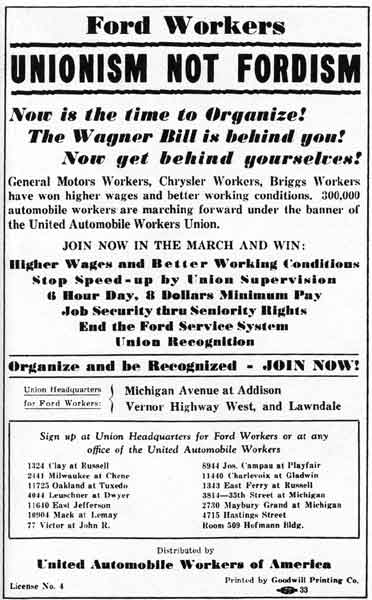home |
many pasts |
evidence |
www.history |
blackboard |
reference
talking history | syllabi | students | teachers | puzzle | about us
talking history | syllabi | students | teachers | puzzle | about us
“The Wagner Bill is behind you!”
The Wagner Bill was the most radical and far-reaching piece of legislation passed in Roosevelt’s second “hundred days.” Following on the heels of intense industrial unrest, large-scale strikes, and social turmoil, the act guaranteed workers the right to organize unions, and to strike, boycott and picket their employers. It also outlawed “unfair” labor practices by employers, including blacklisting union activists or intimidating workers who sought to join an independent union, and ensured workers the right to collective bargaining. This leaflet distributed by the United Automobile Workers captures the impact of the Wagner Act on union organizing, as it provided a spur for industrial unionism.

Source: Scott Molloy Archives.
